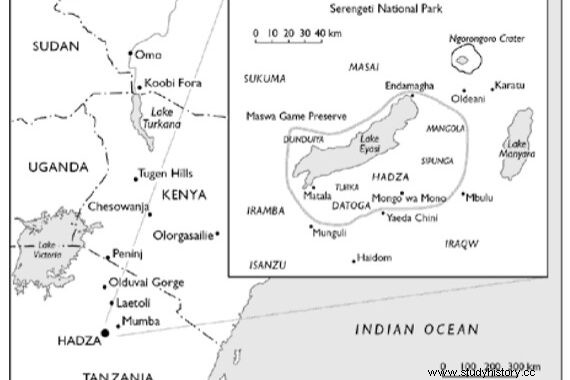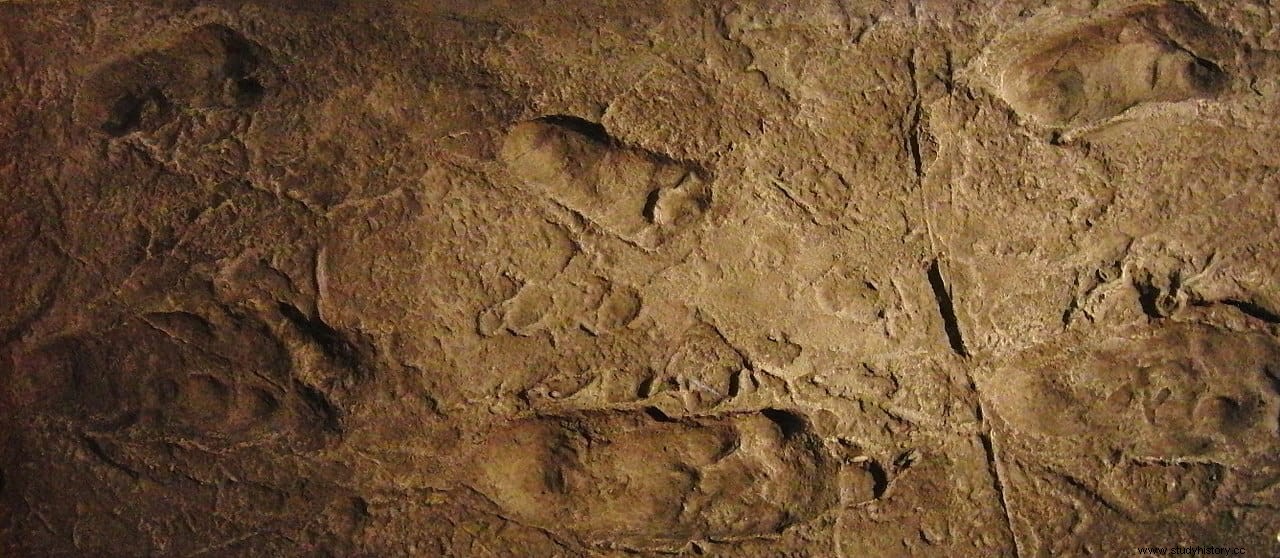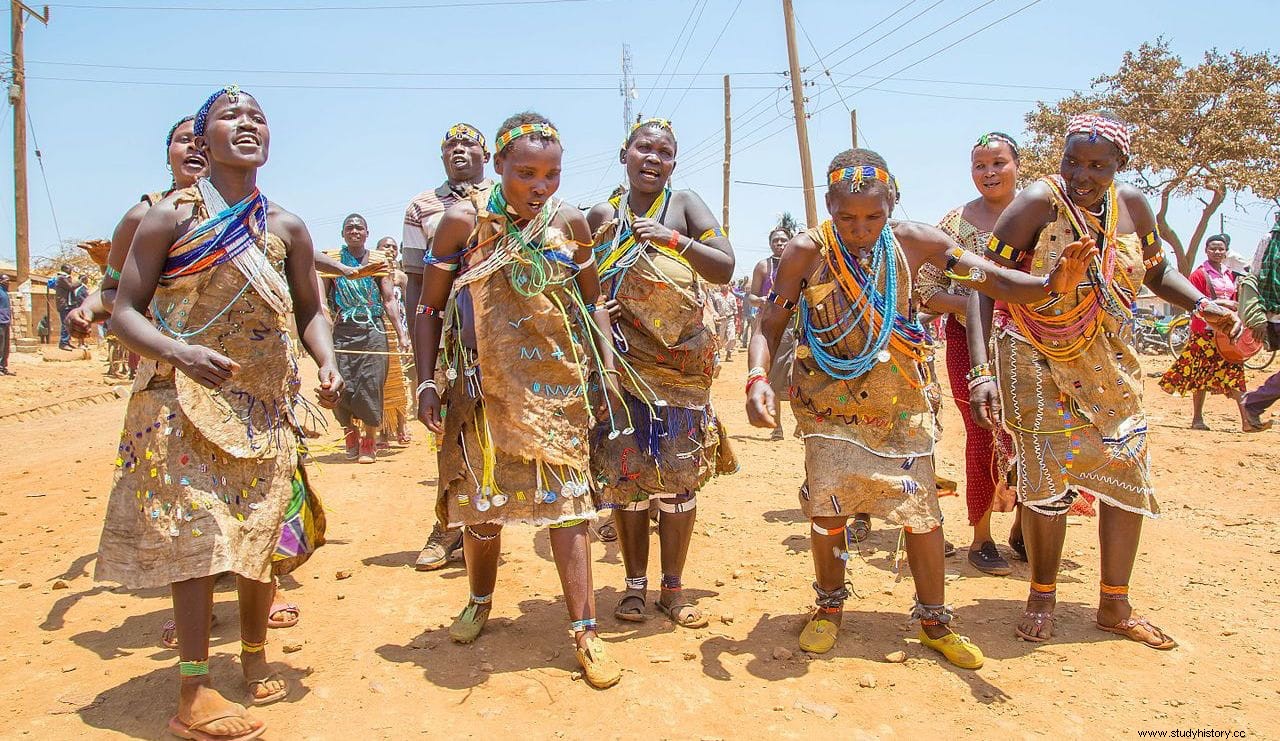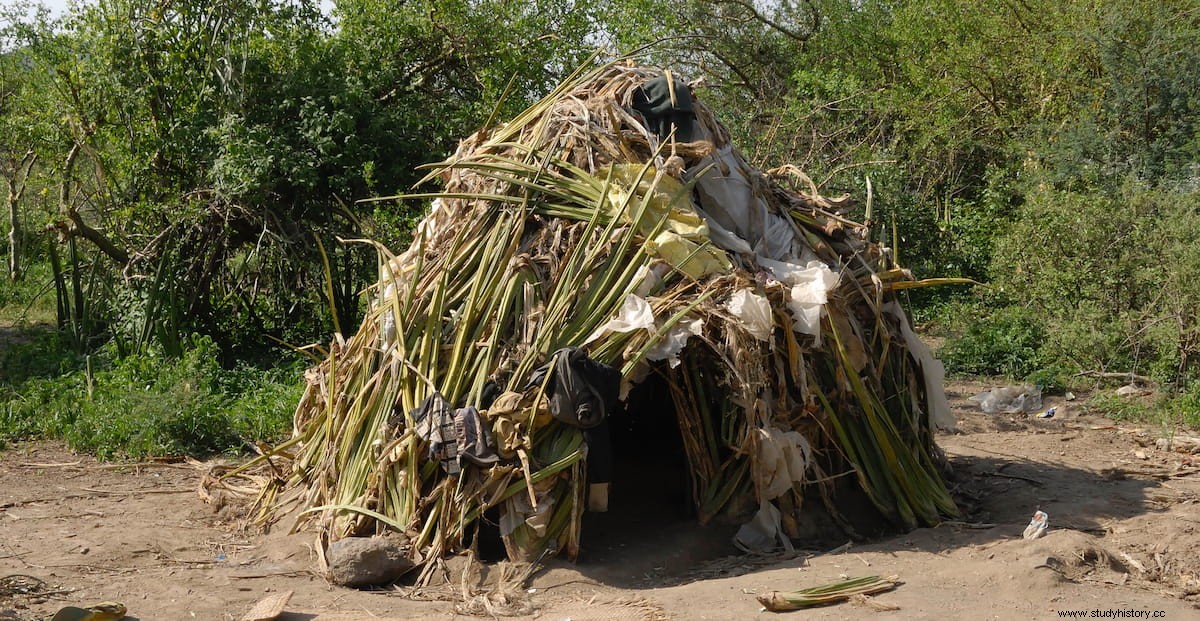The Hadza people are an ethnic group that lives around Lake Eyasi in the Great Rift Valley and near the Serengeti Plain in Tanzania, in an area properly called Hadzaland.
In 2015 there were between 1,200 and 1,300 individuals, a small group of which, barely 300, still survived dedicated to hunting and gathering exclusively. This small town, which has been exhaustively studied by anthropologists in recent decades, has some characteristics that make it certainly peculiar and unique within the African continent.
They are not related to any other people. Genetic tests show that even the Sandawe people, who live just 150 kilometers away, split from the Hadza more than 15,000 years ago. These same tests reveal that, in recent centuries, there has been significant mixing with the Bantu.

They are considered descendants of the aboriginal hunting and gathering population of the area they inhabit, territory they would have occupied for thousands of years (they are not known to have come from anywhere else, and their tradition does not mention any migration either).
In addition, their way of life has remained unchanged, with few changes except in the last hundred years as a result of contact with the surrounding agricultural and livestock population.

Keep in mind that Hadzaland is only 50 kilometers from the Olduvai Gorge, considered the cradle of mankind due to the large number of hominid fossils found (with the oldest evidence of elephant hunting, by Homo ergaster ), and 40 kilometers from the prehistoric site of Laetoli, where the first footprints of bipedal hominids were found.
According to Frank Marlowe, evidence suggests that this entire area has been continuously occupied by hunter-gatherers like the Hadza for at least 50,000 years.
The Hadza have a unique oral tradition, divided into four eras. Collected, among others, by D.K. Ndagala and N. Zengu, each of these periods is characterized by being inhabited by a different people, all of them ancestors of the Hadza.

The description of their way of life suggests that these stories may be so old that, at least as far as the first people are concerned, it could refer to Homo erectus or another hominid of similar antiquity, already extinct.
Thus, according to the Hadza, the first people to live at the beginning of time were the Akakaanebe or Gelanebe , that is, the ancestors. They had no tools or fire (because the earth was too wet, though they could produce sparks by hitting stones), but hunted by staring at the animals, and they fell dead. They were furry giants who ate raw meat and slept under trees because they didn't build houses. They also had no weapons.
In the second epoch the Akakaanebe they are succeeded by the Tlaatlanebe , also giant but hairless. They already knew how to make fire (thanks to the fact that the earth dried up) and used it to cook meat.

At this time the animals had become more cautious and fled from human beings, so they had to use dogs to chase and hunt them. The Tlaatlanebe they were the first to use medicines and amulets, and they lived in caves. They also began to worship a sacred being called epeme .
The third epoch is that of the Hamakwabe , already smaller than their ancestors. They invented the bow and arrows, cooking pots, and houses similar to those of the Hadza today.

They were the first to have contact with other towns that were not dedicated to harvesting, from which they obtained El Hierro to make knives and arrows. They mastered fire and invented a game called lukuchuko .
Finally the fourth epoch, which continues today, is inhabited by the Hamaishonebe , that is, the current people. They are smaller than the Hamakwabe and they were the ones who began the mixture with other surrounding societies.
According to Ndagala and Zengu these Hadza oral traditions reveal many elements of continuity and change, not only in recent decades, but also from the very beginning of human existence .

As if all this weren't peculiar enough, most Hadza continue to live without a calendar, laws or writing (and even then their language is not considered endangered).
